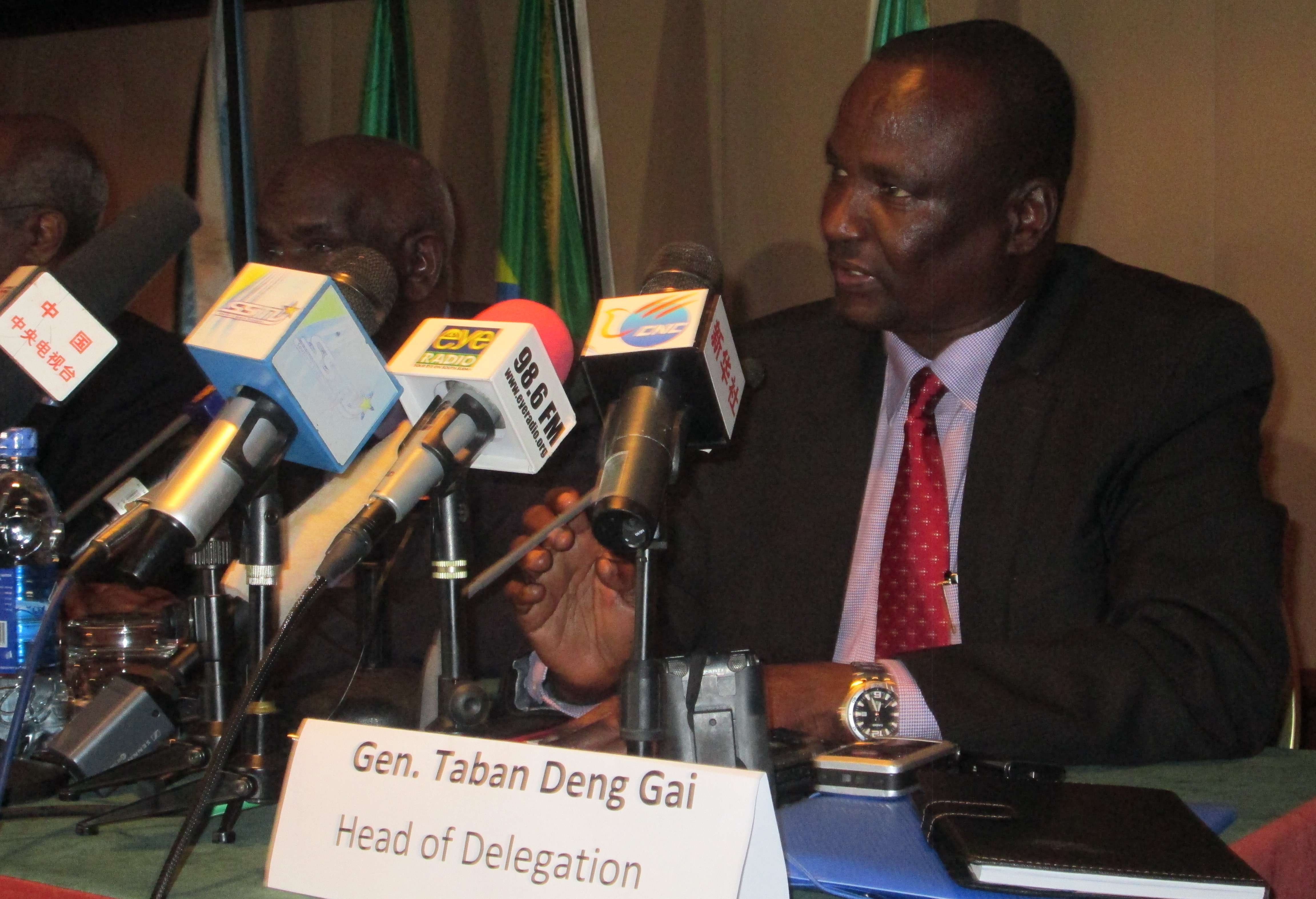Despite approach of August 17 deadline for peace deal, S. Sudan’s warring rivals appear intractable as ever. Fresh talks between South Sudan’s warring parties – who met this week in Addis Ababa under the auspices of the “IGAD-plus” mediation initiative – appeared to show unbridgeable gaps between the antagonists.
Fresh talks between South Sudan’s warring parties – who met this week in Addis Ababa under the auspices of the “IGAD-plus” mediation initiative – appeared to show unbridgeable gaps between the antagonists.
The talks come ten days after negotiators from both sides received a proposed peace deal – dubbed the “compromise agreement” – that tackles the main sources of disagreement, including governance, security arrangements and wealth sharing.
According to a deadline set by the mediators, the warring factions have until August 17 to reach a final peace deal. However, statements made in Addis Ababa by rival negotiators – Nhial Deng Nhial representing the South Sudanese government and Taban Deng Gai representing the rebel SPLM-in-Opposition – appeared to reveal insurmountable differences.
However, statements made in Addis Ababa by rival negotiators – Nhial Deng Nhial representing the South Sudanese government and Taban Deng Gai representing the rebel SPLM-in-Opposition – appeared to reveal insurmountable differences.
‘No legitimacy’
“We are negotiating with a government that has lacked legitimacy since July 8, 2015,” Gai declared at the talks, referring to the expiry of President Salva Kiir’s term in office (which was extended by another three years in a March parliamentary session in Juba).
“Therefore,” Gai asserted, “it [Kiir’s administration] cannot continue to claim the legitimacy necessary to deserve that special advantage in power sharing.”
Under the terms of the compromise agreement, 53 percent of executive power will be reserved for Kiir’s incumbent government, while 33 percent will be reserved for the SPLM-in-Opposition.
Yet despite these reservations, Gai added, his delegation had come to the Ethiopian capital with a full mandate to hammer out “a just and sustainable peace”.
‘Ill-conceived’
Nhial, the government’s chief negotiator, for his part, rejected a clause in the compromise agreement ceding control of South Sudan’s Upper Nile, Jonglei and Unity states to the rebels for a transitional period.
“What we were not prepared for was IGAD’s abrupt and ill-conceived decision that control of the three states… be handed over to the opposition on a silver platter,” he said.
Nhial also went on to assert that the compromise agreement’s calls for demilitarizing capital Juba would serve to “undermine the sovereignty” of South Sudan.
The Intergovernmental Authority for Development (IGAD) is a Djibouti-based East Africa regional bloc, which for over one year has been mediating the conflict in South Sudan.
Following the failure of earlier peace proposals, IGAD recently launched “IGAD-Plus,” a new initiative bringing a number of non-IGAD African states – along with several international actors – into the mediation process.
In a recent visit to Ethiopia, U.S. President Barack Obama met with IGAD leaders, to whom he reiterated the U.S. position that the Aug. 17 deadline spelt out under the new mediation initiative must be respected.
South Sudan, which seceded from Sudan in 2011 to become its own country, has been shaken by violence since late 2013, when President Kiir accused Riek Machar, his sacked vice-president, of leading a failed coup attempt against his regime.
Since then, tens of thousands of people have reportedly been killed in fighting between government troops and rebel forces loyal to Machar, while hundreds of thousands have been forced to seek refuge in displacement camps across the country.






























